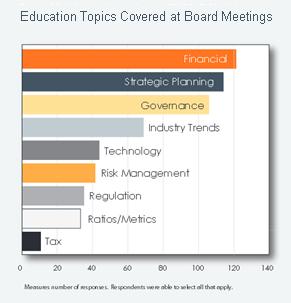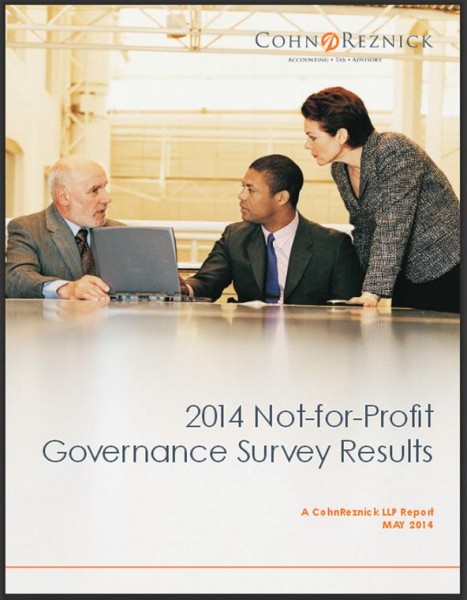Nonprofit Governance Has Room for Improvement, Survey Finds
/The 4.9% rise in charitable giving in 2013 is the largest gain since 2008, and comes at a time when greater attention is being paid by philanthropic donors and regulators to the governance practices of non-profit organizations. The CohnReznick 2014 Not-for-Profit Governance Survey reflects some progress as well as areas for improvement by nonprofits on a range of governance measures. The members of CohnReznick’s Not-for-Profit and Education Practice specialize in working closely with the boards and management of not-for-profit organizations to assist them in developing and implementing best-practices for their critical financial and operational functions. “Now more than ever,” the report indicates, “our clients are asking us questions about policies and procedures relating to audit committee governance and risk detection and minimization strategies.”
Key findings in the national survey included:
- 58% of respondent organizations stated that they have an audit committee that is separate and apart from their finance
 committee
committee - 54% of respondents stated that their audit committees have between four and six members
- 27% of the respondents stated that their organizations have a whistleblower hotline
- 68% of respondents stated that their annual board meetings contain an educational component
- 82% of responding organizations have a whistleblower policy in place.
- 42%, stated that they do not have an audit committee that’s separate and apart from a finance committee.
When identifying conflicts of interest, the survey found that 77% of the respondent organizations have an annual disclosure statement in place.
The survey also found that 68% of the nonprofit organizations include an educational component to their board meetings and place a strong emphasis on financial, strategic planning, and governance. Other areas receiving attention at board meetings include industry trends, technology, risk management, regulation and tax issues.
According  to the National Center for Charitable Statistics (NCCS), there are more than1.4 million not-for-profit organizations registered in the U.S. This includes almost one million public charities, over 96,000 private foundations, and more than360,000 other types of not-for-profit organizations, including chambers of commerce, fraternal organizations, and civic leagues.
to the National Center for Charitable Statistics (NCCS), there are more than1.4 million not-for-profit organizations registered in the U.S. This includes almost one million public charities, over 96,000 private foundations, and more than360,000 other types of not-for-profit organizations, including chambers of commerce, fraternal organizations, and civic leagues.
The survey found that less than 50 percent of boards noted that they are “very confident” in their organization’s governance practices. With the addition of new laws and regulations surrounding the industry, “this lack of confidence can give rise to much larger issues hesitation,” the report concluded. According to Forbes, charitable giving rose 4.9% in 2013, the largest increase in five years. This rise indicates “a renewed attention for not-for-profit organizations, which can also lead to renewed scrutiny.”
Knowledge of the intricacies of regulations and the effects that it will have on the governance practices of not-for-profit organizations is crucial to the success of affected organizations, the reported pointed out.
With origins dating back to 1919, CohnReznick LLP is the 10th largest accounting, tax, and advisory firm in the United States. Headquartered in New York City, CohnReznick serves its clients with more than 280 partners, 2,500 employees, and 26 offices – including Farmington, Glastonbury and New London in Connecticut, with plans for newly consolidated offices in downtown Hartford.
The consolidation of the two suburban offices in Glastonbury and Farmington is expected to relocate nearly 200 employees into Hartford later this year. The company plans to lease 50,000 square feet on the top two floors of the Metro Center building on Church Street.






























